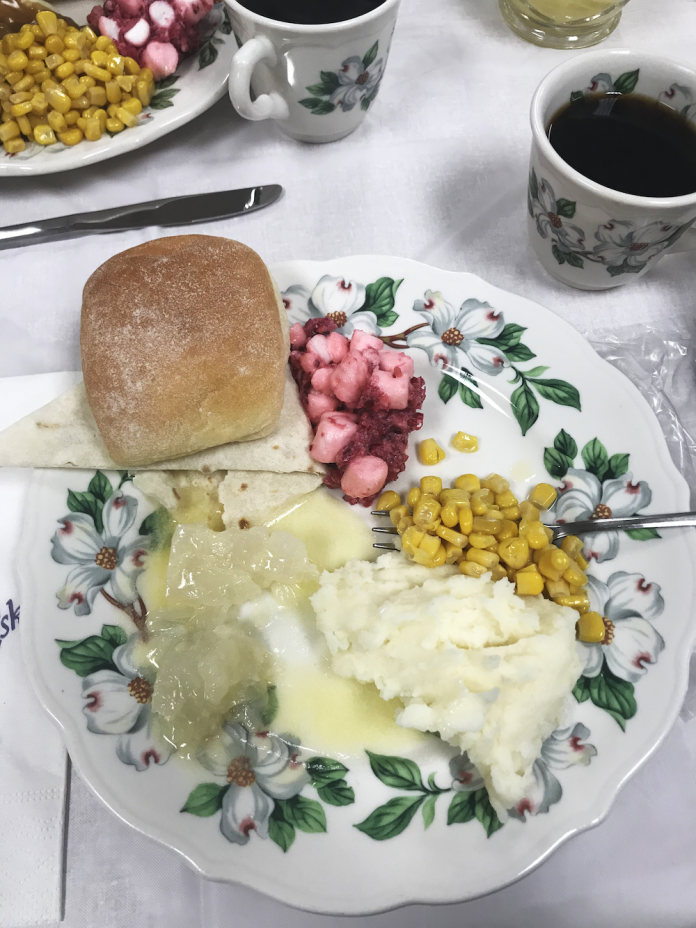What Kind of Nostalgia Hooks You?
I notice that as I grow older, I have to watch myself—or I’ll begin to paint a picture of my life, my communities, or God’s Church in the past that just isn’t accurate. Nostalgia can cut both ways. We can over remember the struggle and resilience of hard times, or we idealize the “good old days.”
I had a beloved uncle who often spoke about the Dust Bowl years, especially the peak years, “back in ’33–’34.” The trauma of that era stuck with him as he looked back. As a farm kid, he remembered drifts of dirt covering fences like snow, foreclosures, and the loss of dreams. Those memories planted seeds of lifelong fear and anxiety.
There are plenty of people and congregations who get stuck in the “good old days,” like when Pastor So-and-So was here and the sanctuary was full every Sunday. But those memories, though cherished, can sometimes obscure our ability to live with joy and purpose today.
I remember a congregational anniversary I attended. The leaders showed me a photo from an earlier celebration. In that older picture, the almost full band and the crowd was many times bigger than the picture we’d just taken. The past photo wasn’t a typical Sunday, it was a special occasion. But that image had the power to seduce memories and distort perceptions, making it seem like “things used to be better” than they really were. Worse, it provoked amnesia– forgetting the real struggles, conflicts, and heartbreaks that also marked those times.
The Danger of Idealized Memory
I sometimes hear people say things like, “Everything’s going to hell in a handbasket.” And then, almost without noticing, people will start longing for a time that never really was. It’s hard to tell the truth about the past when we use it to critique the present. We tend to forget the deep poverty, the lack of access to education or healthcare, the hard manual labor, the limited roles for women, or the fact that many people were literally hungry.
In our communities of faith, nostalgia can also steal our energy away as we look back and remember a world that is better than it ever really was. Nostalgia numbs our memory of the pain, suffering and broken-ness of previous chapters of congregational life and history. Nostalgia can take our attention away from the work and life we are called to do now and in the coming chapters of our life and life together as God’s people. It can block us from noticing God’s Spirit moving in our lives now.
Looking back—lingering, longing, envying what has been lost—can take the joy out of today. It can slow us down or disrupt our imagination and work to reform our lives, communities of faith, communities, and God’s Church to best serve “God’s preferred and promised future.” It can paralyze us and create conflict or unfruitful tension as we consider change.
I think of Terry Redlin’s art. He painted farmyards in glowing colors—more vivid and beautiful than any farmyard ever looked. That’s how nostalgia works: it softens the edges, simplifies the complexity, and paints over the messiness of creating something new. We do this same thing with our memories, create a world where we remember some things and forget others. It is a world where things are simple and beautiful, not messy, struggling with the labor of creating a new future, sometimes hard, and often confusing.
Nostalgia Can Hurt Our Spiritual Health
In seasons of our spiritual life, nostalgia can constipate us—slow us down, block us from seeing our calling(s). It distracts us from hearing God’s Spirit whispering new invitations into the “the diaconate [service] of all believers,” where we discover new ways to love God and neighbor.
When congregations gather around memories of “when the church was full,” we can lose sight of what we’re called to be now. A “churchified” backward looking focus and vision of the past often gets in the way of the cross-centered call of Jesus into our future. We easily get stuck in cycles of nostalgia that are neither fruitful nor faithful. Jesus invites us not just to remember, but to follow him into our time and context.
Reclaiming Hope over Memory
We need to develop tools to interrupt this cycle. For example, when people say, “We just need to do that again to get people back,” we should invite people to pause and talk about some questions. What was that tradition, like the Lutefisk dinner (a Scandinavian soul food), really about? Was it about cultural heritage, raising funds, gathering the community, building connections, serving the Gospel?
Let’s name those goals. Let’s notice the values driving our practices. Then it will be easier to evaluate them and find fresh ways to embody these values in our current context. Maybe the Lutefisk dinner becomes a community-wide gathering meal of another kind that better reflects the diversity of our neighbors today.
As Kennon Callahan put it:
“Memory is strong. Hope is stronger.”
History is a gift. So is tradition. But when traditions no longer serve the Gospel, we must be willing to prune them—to make space for what God is doing now. That work is hard and yet it opens us to the Spirit’s blowing fresh ideas into lives, our churches, and our callings.
In a similar way, when folks long for “the good old days,” listen to their storytelling and explore what it means. Try asking:
- “What made that time good?”
- “What values and hopes were we living out then?”
- “How can we live them now, in new ways?”
- “What is God calling us to do with our energy in our time? In our future?”
In the small community of my younger years, you had to work not to grow up Christian. That’s no longer true. It is one of many significant changes in our lives and culture. We can’t simply rely on inherited patterns to serve our swiftly changing context. We need to teach practices of faith, minister to all our neighbors, stew together in prayer, and engage in conversations about where God is calling us now. This verse speaks to our priorities as we follow Jesus together.
“Those who try to make their life secure will lose it, but those who lose their life will keep it.” — Luke 17:33
Our Lord Jesus calls us into a paradox—to lose ourselves for the sake of the Gospel. That’s not about forgetting the past, but refusing to live in it. Jesus sends God’s Spirit like prairie winds, moving us toward God’s dreams for the world.
Looking back, lingering, longing for what was, can kill us in more ways than one. Remembering a world that never was, envying others, coveting what we do not have, can kill our life together, too.
Former Presiding Bishop of the ELCA, Mark Hanson, used to share how scholar Christopher Lasch defined nostalgia as: “The abdication of memory.”
“Living memory,” Hanson said, “embraces the past to inform the present, while nostalgia dwells in an idealized past that disparages the present.” Congregations stuck in nostalgia long to recreate a past that never existed. That longing becomes a wall between us and the work God is doing today.
A Living God Calls to a Lively Future
We serve a living God, who is working in our midst. God calls us to listen, discern, and experiment. In Christ, we have the freedom to shepherd both the inherited and the innovative. We are called to paths to love our neighbors and serve the Good News we know in and through Jesus. By God’s grace we are called to follow and continue to become gracious apprentices of Jesus.
God’s Spirit gathers the full gifts of the Body of Christ—not to return to what was, but to build a deeper, richer, more faithful future than we could have imagined. God sends us to love all our neighbors, mobilize all the gifts of the body of Christ, and enter into a future deeper, richer, and wider than any thing we remember.
“So if anyone is in Christ, there is a new creation: everything old has passed away; look, new things have come into being! All this is from God, who reconciled us to himself through Christ and has given us the ministry of reconciliation”
-2 Corinthians 5


